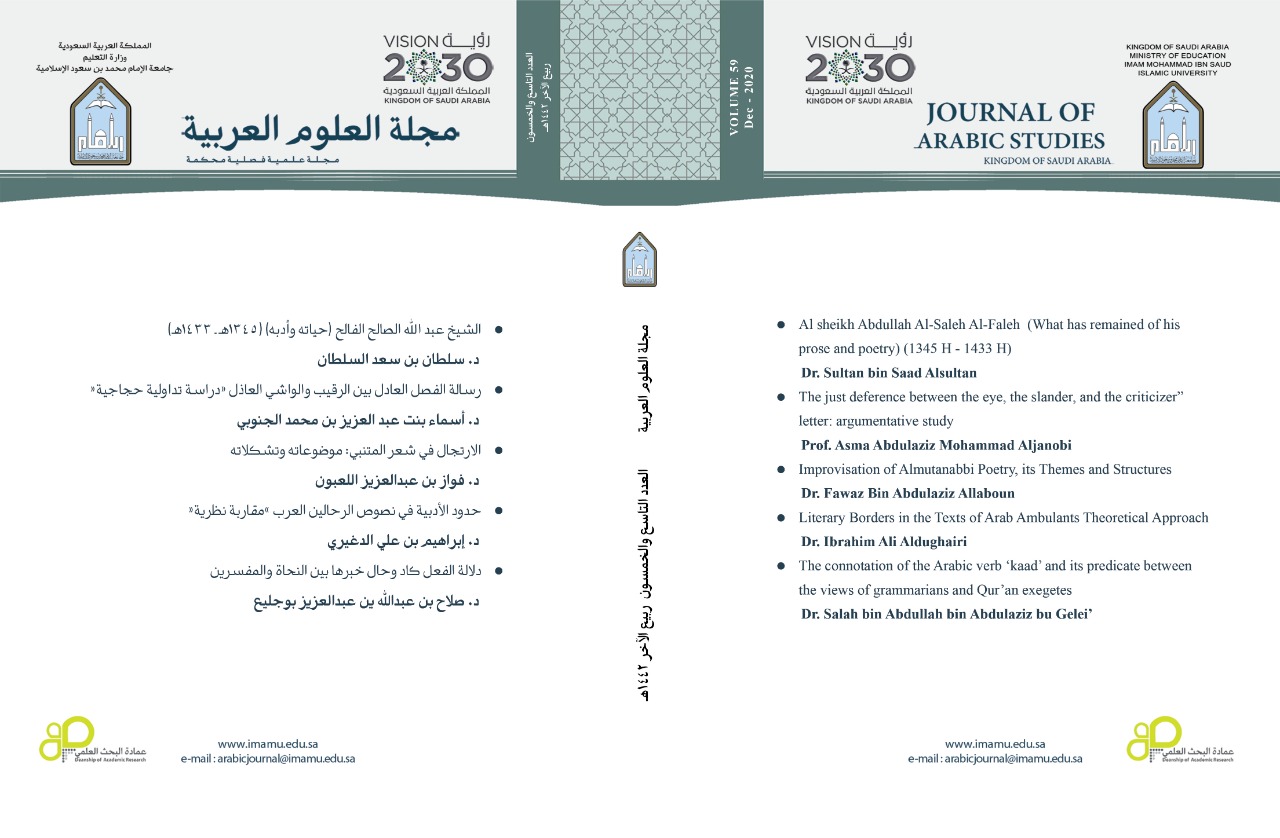The connotation of the Arabic verb ‘kaad’ and its predicate between the views of grammarians and Qur’an exegetes
Keywords:
Connotation of the Arabic verb ‘kaad’ – connotative meaning of the verb ‘kaad’ – the verb ‘kaad’ between grammarians and exegetesAbstract
This research discusses the connotative meaning of the Arabic verb "كاد” and the scholarly dispute among grammarians and Muslim exegetes of the Holy Qur’an about the position of its predicate. It seeks to answer the following questions: What are the views of the grammarians about this issue? What are the points of disagreement among them? Do Muslim exegetes subscribe to the grammarians’ views regarding the points they differed? Do the exegetes agree with the grammarians concerning the points they agreed upon? Are there any other senses for the verb "كاد" held by the exegetes? Are the grammarians influenced by the exegetes’ Qur’an interpretations, or were the Qur’anic interpretations influenced by the positions of the grammarians? Which of those sayings is closer to the lexical sense of the verb? What is the most correct saying about the meaning of "كاد" based on the grammarians’ theoretical views and the exegetes’ applied methods? The research consists of a preface, two main sections and a conclusion. The preface analyzes the form and lexical meaning of the verb “كاد”. The section defines the communicative meaning of the verb “كاد” and the grammarians’ views on its predicate. The second section analyses the exegetes’ interpretations of the connotative meaning of the verb "كاد" and the position of its predicate. The conclusion presents the main findings of the research.




